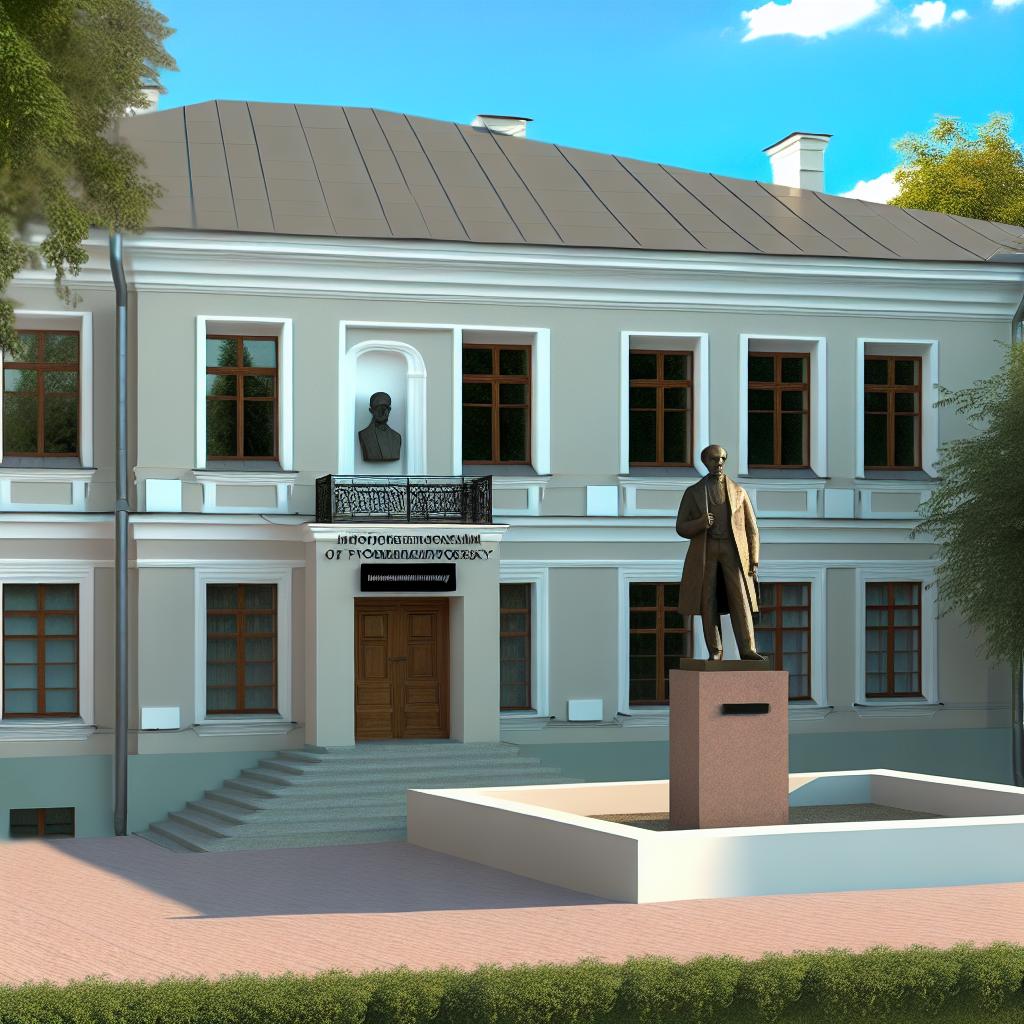Overview of the Dostoevsky Museum
Located in the vibrant and historically rich city of Saint Petersburg, Russia, the Dostoevsky Museum stands as a testament to the enduring legacy of Fyodor Dostoevsky. This cultural institution is not merely a repository of artifacts but an immersive experience that connects visitors with the life, thoughts, and writings of one of Russia’s most influential literary figures. Located at the notable address of Kuznechny Lane, 5/2, this was the final residence of Dostoevsky, framing a pivotal backdrop to the closing chapter of his life and creative output. The house witnessed the creation of his last masterpiece and stood witness to his final years, from 1878 until his death in 1881.
Historical Significance
The historical essence of the Dostoevsky Museum transcends its walls, serving as a bridge to the past where history, literature, and personal narratives intertwine. The very structure of the building held importance in Dostoevsky’s life, being the place where he completed his final novel, The Brothers Karamazov. It is here that he culminated his journey as a writer whose works profoundly explored the human psyche, morality, and faith. The museum offers a unique opportunity to walk through a preserved space where Dostoevsky’s creativity flourished, surrounded by items that both influenced and were influenced by his genius.
Exhibits and Displays
The exhibits within the Dostoevsky Museum are thoughtfully curated, providing an evocative glimpse into both the personal and literary world of Dostoevsky. The reconstructed apartment section of the museum acts as a time capsule, recreating the atmosphere of Dostoevsky’s domestic life during his last years. Visitors find themselves surrounded by personal belongings, period furniture, and other artefacts that once marked the private world of the author.
Adjacent to the living quarters, the literary exhibition presents an assemblage of manuscripts, rare first editions, and original illustrations that chronicle Dostoevsky’s illustrious career. These exhibits highlight his influential works, characterized by complex characters and intricate plots, offering insights into the themes and philosophies that defined his narrative style. Manuscripts displayed in the exhibition give a deeper understanding of Dostoevsky’s writing process and evolution as an author.
In addition to traditional displays, the museum leverages modern technology to offer an interactive experience. Through multimedia presentations, visitors are introduced to the diverse adaptations of Dostoevsky’s works across stage, film, and global literature. These installations demonstrate the enduring cultural impact of Dostoevsky’s themes, which remain relevant in different contexts and continue to inspire creators worldwide.
Events and Educational Programs
Beyond the regular exhibits, the Dostoevsky Museum serves as a dynamic cultural hub by hosting various events and educational programs. These initiatives are designed to engage visitors in active dialogue and reflection regarding Dostoevsky’s work and ideas. The museum organizes lectures, workshops, and guided tours that delve into the philosophical underpinnings of his novels and their influence on modern-day thought and culture.
Temporary exhibitions further diversify the museum’s offerings, bringing fresh perspectives and new artifacts from Dostoevsky’s contemporaries and those influenced by him. Literary evenings are frequent, fostering an environment where visitors can immerse themselves deeply into the world of Russian literature.
Practical Information
Planning a visit to the Dostoevsky Museum is straightforward, thanks to comprehensive resources available on their official website. The museum operates throughout the week, and detailed information on opening hours can be accessed online to assist in planning your visit. Admission is ticketed, with reduced fees available for students and seniors, ensuring greater accessibility to these cultural riches.
For an enhanced visit, audio guides and guided tours are offered in multiple languages. These resources facilitate deeper engagement and understanding of the extensive and varied collections, enabling visitors to grasp the layers of meaning within Dostoevsky’s works.
Recognizing the importance of accessibility, the museum has also made provisions for visitors with special needs, ensuring an inclusive experience. This consideration adds to the museum’s commitment to making Dostoevsky’s legacy accessible to everyone, regardless of physical limitations. The museum staff, known for their expertise and dedication, are always on hand to assist and provide insights, ensuring a fulfilling visit.
The Dostoevsky Museum thus serves as a vital cultural and educational landmark. By preserving the memory and works of Fyodor Dostoevsky, it invites visitors into an era that shaped not only Russian literature but also had a profound impact on global literary traditions.

